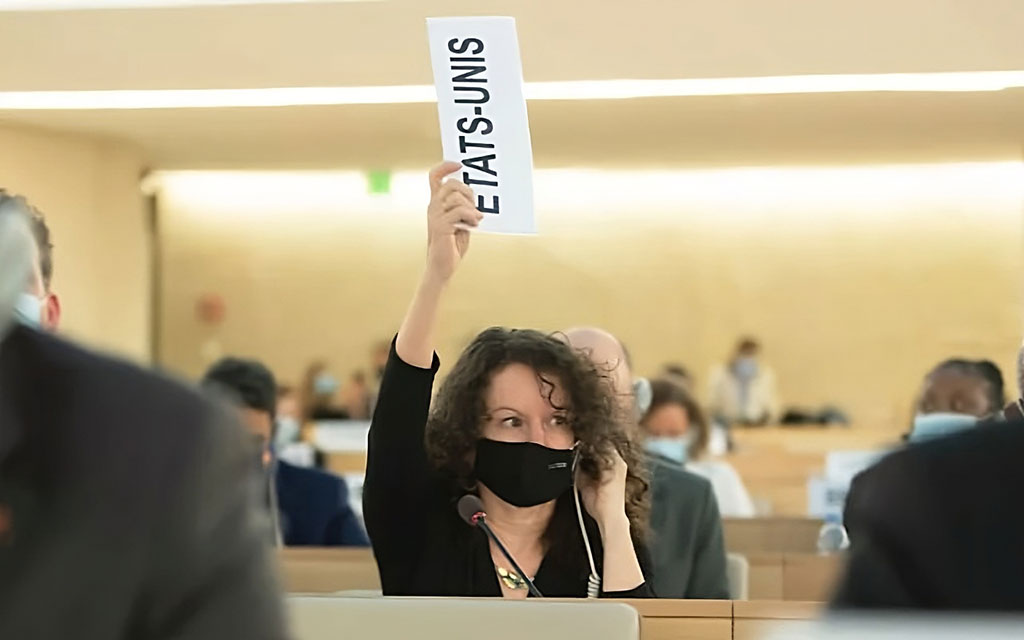The fight for human rights has been a core tenet of the UN’s mission since its inception. The UN’s human rights work is multifaceted and carried out by an array of entities, one of the most significant of which is the UN Human Rights Council (UNHRC). Composed of 47 Member States elected to three-year terms by the General Assembly, the Council passes resolutions on country-specific human rights situations, orders inquiries, holds special sessions to respond to emergencies, and appoints independent experts. While the Council’s decisions are not legally binding, they do carry important moral weight and can be used as a tool for naming and shaming human rights abusers.
Since the Council’s establishment in 2006, U.S. engagement has ebbed and flowed from administration to administration. In June 2018, the Trump Administration withdrew from the Council, accusing the body of anti-Israel bias and pointing out that some authoritarian states are members. In 2021, the Biden Administration reversed this policy, winning election to the Council in October. The U.S. took its seat in January 2022.
While the UNHRC is not perfect, history has shown that the U.S. is far more effective in improving the Council’s record when it is a member. For example, when the U.S. was fully engaged in the Council’s work from 2010 to 2018, it made progress on several fronts.
